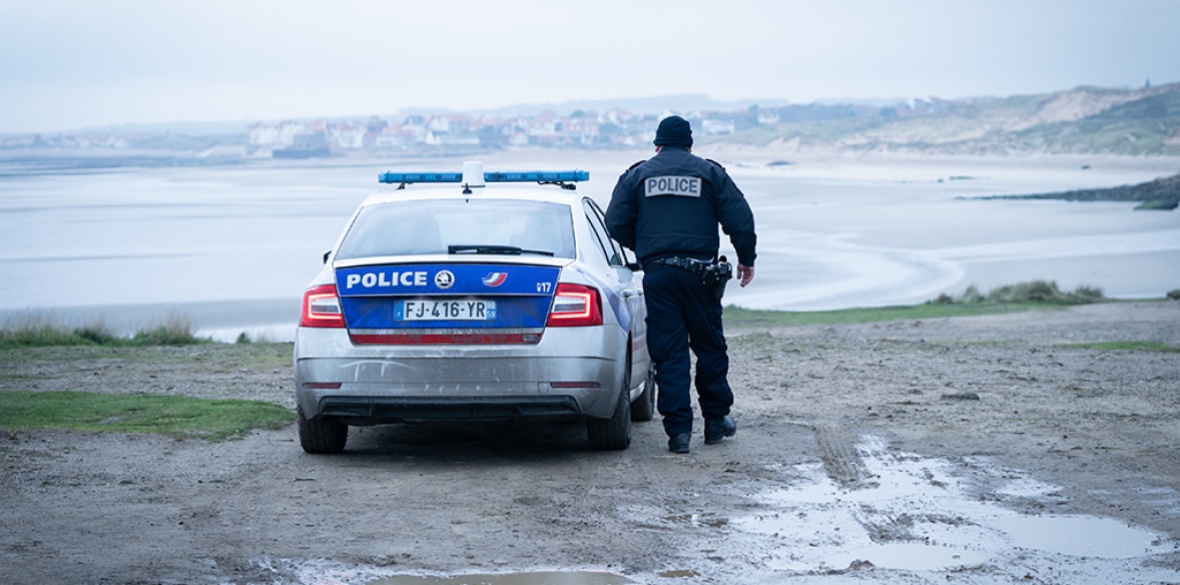BORIS JOHNSON’S claim to be “appalled” by the drowning of 27 refugees in the Channel as they sought safety in Britain is belied by his immediate emphasis on the need to smash people-smuggling gangs.
Few will disagree with Immigration Minister Kevin Foster’s attack on “evil” human traffickers who “view these people ... as just a profit-making opportunity,” but the government’s insinuation that tragedies like this are down to trafficking gangs is an abdication of responsibility.
An exclusive focus on traffickers concentrates on a symptom — the existence of gangs seeking to profit from the refugee crisis — rather than the root problem, the existence of the crisis in the first place. Worse, it doubles down on an unworkable policy of seeking to block all points of entry that demonstrably drives desperate people onto the most dangerous routes.
The Refugee Council points out that the media furore over boat crossings has more to do with their greater visibility compared to other modes of entry than a rise in numbers, with asylum claims in the year ending June 2021 actually down 4 per cent on the previous year. It adds that the rise in attempts to cross the sea is linked to the crackdown on other routes.
Reporters speaking to asylum-seekers who have crossed by boat say large numbers are Afghans and Iraqi Kurds, with the latter making up the majority of those tragically drowned yesterday.
This undermines the government’s claim that these are economic migrants “jumping the queue” rather than refugees seeking protection, and highlights the connection between the refugee crisis and the destabilisation caused by the invasions of Afghanistan and Iraq by US-led coalitions that included Britain.
This reality also explodes the myth that the refugee crisis is some kind of assault on the West orchestrated by its enemies, a propaganda line deployed by both the European Union and Britain with regard to the recent standoff at the Polish border. Desperate people, some children, froze to death in the woods as Britain sent troops to help the Polish government secure the “frontiers of freedom” and keep them out.
The cover of this week’s edition of right-wing magazine The Spectator depicted “trouble brewing at Europe’s borders” with a cartoon of Presidents Putin, Lukashenko and Erdogan as witches stirring a cauldron bubbling blood, a clear attempt to portray the flow of refugees as a problem concocted to destabilise the EU.
The words of an Iraqi Kurd fleeing a police assault on protesters in Slemani this week — “This is why we are going to Belarus” — give the lie to such narratives, in which an inhuman refusal to open the borders is excused by the need to win a supposed geostrategic confrontation.
The bid to shift the blame is particularly hypocritical given the EU’s notorious agreement to pay Turkey to hold refugees rather than allow them passage on to Europe. Not something we hear much about today, just as Tory ministers’ crocodile tears over people-smuggling never extend to acknowledging the role their destruction of the Libyan government in 2010-11 played in the growth of this deadly traffic.
Solidarity campaigns warning that the Channel risks becoming, like the Mediterranean, an immense graveyard illustrate the international character of this crisis, from rescuers being put on trial for saving lives in Greece and Italy to the “deportation offensive” promised by the incoming Social Democrat-led coalition in Germany.
The left’s response must be similarly broad, with cross-border initiatives to help refugees (like the German grassroots campaigns to open a humanitarian corridor through Poland for the families trapped in Belarus) combined with a relentless focus on changing the murderous policy of our own government.
Aside from Britain’s central role in the wars that drive the refugee crisis, the simple truth is that these people are fleeing danger and seeking safety. Our duty is to let them in.











